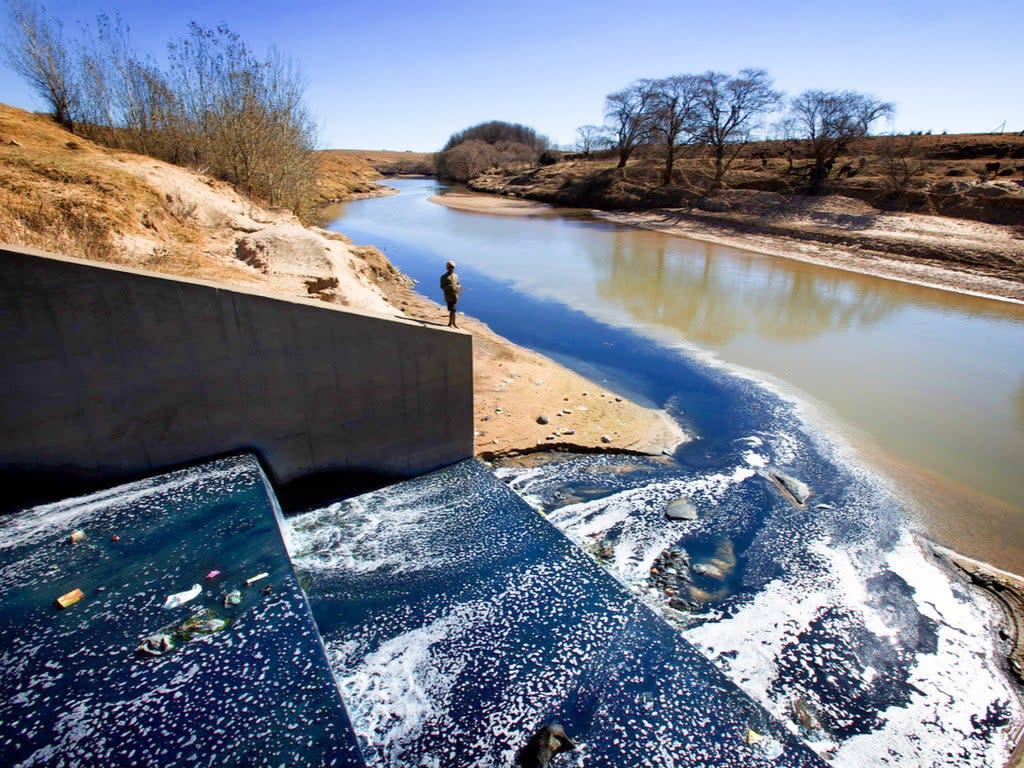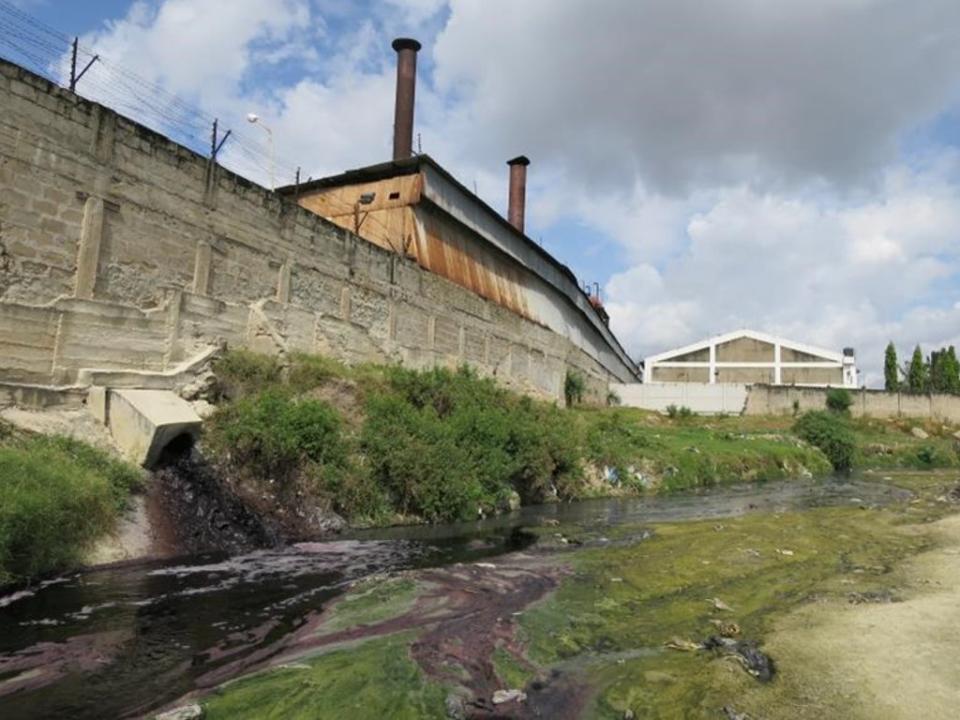Fast fashion is dying African rivers blue, report says

Global fast fashion brands are helping drive pollution that has dyed African rivers blue or turned their waters as alkaline as bleach, according to a report.
Water Witness International’s (WWI) report featured the polluted rivers in Lesotho in southern Africa and Tanzania to highlight the risks posed as global brands increasingly source garments from contractors in Africa, attracted by cheap labour and tax incentives.
Global brands could force better practices, but so far their presence in Africa has done little to stem rife pollution, water hoarding by contracting factories or even ensure adequate water and sanitation for factory staff, said Nick Hepworth, director of WWI and author of the report.
Mr Hepworth said the “flipside is that (fast fashion) could be a force for change” but brands and investors needed to take the lead.
In Lesotho, researchers found a river visibly polluted with blue dye for denim jeans.
Samples taken from Tanzania’s Msimbazi river in Dar es Salaam meanwhile tested a pH of 12 – the same as bleach – near a textiles factory, the report said, adding local communities use the Msimbazi for washing, irrigation and more.
It identified some 50 international brands that source or have sourced their clothes from African nations, including Inditex’s Zara, ASOS and H&M, but did not tie the pollution to any company’s supply chain.

Zara did not provide a comment. ASOS and H&M confirmed they source from Africa but pointed to initiatives to ensure sustainability or address water risks.
Dr Katrina Charles, an expert on water security and quality at the University of Oxford, said brands can and do make environmentally sustainable clothing, and consumer pressure was key to encouraging more.
Dr Charles, who has worked with governments in Africa and Asia, said the textiles sector offered opportunities for African nations, including growth and jobs, but these would not pay off if pollution management and adequate working conditions weren’t ensured.
“Making the textile industry a force for good in Africa is a very delicate balance,” she said.
Additional reporting by Reuters
Read More
Bikini-clad woman accused of starting fire near Lake Tahoe in California
The climate crisis is driving bears to town as their food and habitats come under increasing threat
Breaching climate tipping points could triple economic cost of environmental crisis, scientists warn
Texas Capitol building flooded after torrential rain soaks Austin
Scientists sound alarm over growing risk of metal pollution due to manufacturing industries

 Yahoo News
Yahoo News 
